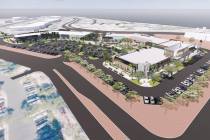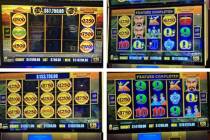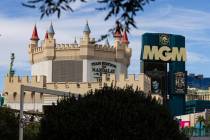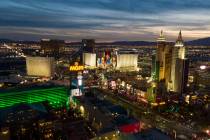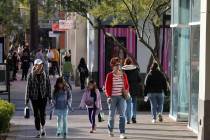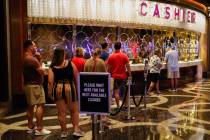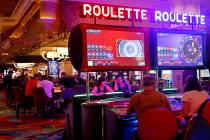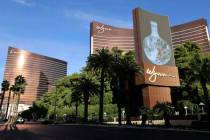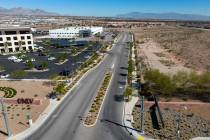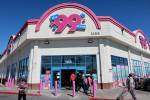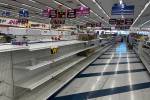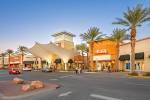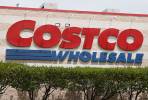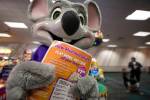Plenty of shoppers but less spending
Stores saw bigger crowds but smaller purchases during the holiday weekend, a result of intense marketing to attract consumers who are losing confidence in the economy.
More than 147 million people shopped during the Thanksgiving weekend nationwide, up nearly 5 percent from last year, the National Retail Federation reported.
Each shopper spent about $347, a decrease of nearly 4 percent from 2006.
ShopperTrak, which conducts surveys at more than 50,000 retail spots, reported weekend sales were up 7.2 percent on Friday and Saturday to $16.4 billion.
Laureen Pastorello, 43, of Las Vegas, was at Meadows mall by 4 a.m. Friday to take advantage of early deals. Pastorello said working hard to find the best deals helps to stretch her $1,500 budget as far as possible.
"You save all year; you have to," she said.
Pastorello was among hordes of shoppers who gathered before sunrise Friday at stores offering the deepest discounts.
Electronics stores seemed to fare best, with Best Buy and Circuit City stores around the country and in Las Vegas drawing crowds in the hundreds of thousands. Fry's in Las Vegas drew such large crowds on Friday that workers said they had to stop customers from entering at least three different times.
But instead of snapping up big-screen televisions, many customers chose smaller items. Laptops, video game systems, DVDs and music players were popular.
"Traffic was up in terms of the bodies of people," said Phil Rist, vice president of strategy for BIGresearch, which conducted the survey for the National Retail Federation. "But each of them spent a little bit less than they did last year."
Nationally, sales may be on track to beat the 4 percent growth experts forecast.
Mark Rein, director of e-commerce retail for Acquity Group in Chicago, said he doesn't think the full effect of falling home prices, rising gasoline prices and tighter credit has sunk in.
"I think credit is still readily available," Rein said.
A story Monday in The Wall Street Journal backed up the assertion. The paper reported that data from Equifax suggests the number of new credit cards is as high as it has been since 2001.
"Next year at this time, if (the economy) continues to slide, then I think we might have a slightly different situation," Rein said.
Another indication of potential hard times is the amount of effort it takes stores to attract spenders.
More retailers were open on the Thanksgiving holiday and others operated longer hours than ever before on Friday.
The extra hours and special deals are important as retailers compete with each other and Web sites to lure customers from a finite pool.
"The consumer has a list of people they are buying for," Rist said. "You are working off a pile of money that is pretty much defined. The retailers are trying to compete for who gets that money."
Eventually, the competition could take a toll.
Malls, for example, often require all stores to be open at certain times. The extended hours can even apply to stores that don't make holiday discounts part of their business plans or have staffs large enough to cover extended hours. In those instances the early shopping can wind up cutting into profits.
"It doesn't make sense for all brands," Rein said. "It puts a lot of strain logistically on the stores."
The Associated Press contributed to this report. Contact reporter Benjamin Spillman at bspillman@reviewjournal.com or (702) 477-3861.
SMOOTH WEEKEND FOR MCCARRAN Traffic at McCarran International Airport moved smoothly throughout the holiday -- despite a forecast that called for about 800,000 people to arrive and depart Las Vegas from Wednesday through Monday. Airport officials opened several new parking lots in time for the weekend surge. The new lots replaced parking spots lost to construction at McCarran. Unlike most of the nation's top airports, Thanksgiving isn't the busiest weekend for flying in Las Vegas. Traffic to and from Southern Nevada peaks early in the year when conventions such as the International Consumer Electronics Show in January attract tens of thousands of guests. REVIEW-JOURNAL








